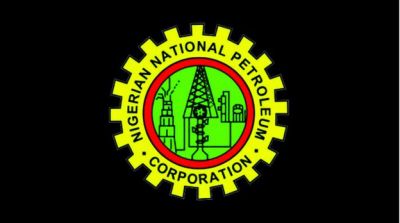
REPORTS that the Nigerian National Petroleum Corporation has not been auditing its accounts duly may not come as a surprise to keen followers of the cagey manner the affairs of the national oil company have been run over the years. But what should not be overlooked from now on is the need to be more serious about the enthronement of transparency and culture of accountability in public office just to discourage other agencies from going the way of the state-owned enterprise.
For many years, the corporation has been at loggerheads with the National Assembly over issues bordering on financial accountability and transparency. The immediate past Minister of Petroleum Resources, Diezani Alison-Madueke, even bluntly refused to appear before the lawmakers when summoned over allegations that she spent over N10 billion to fly in private jets. To legitimise her action, she successfully obtained a court injunction to restrain the National Assembly from questioning her.
It was, therefore, not surprising that, recently, top officials of the Fiscal Responsibility Commission, at a meeting with their NNPC counterparts, challenged the latter for not presenting its audited account to the commission since 2010, in violation of section 23 (3) of the Fiscal Responsibility Act 2007. The provisions of that section say, “Each corporation shall, not later than three months after the end of its financial year, cause to be prepared and published its audited financial reports in accordance with such rules as may be prescribed from time to time.”
Given the sensitive role of the NNPC as the agency warehousing the country’s oil and gas resources, this is an infraction that should not be overlooked. Significantly, according to the acting Chairman, Victor Murako, this blatant show of impunity took place despite several reminders from the FRC. Such an attitude naturally suggests an attempt to cover things up. This has been confirmed by periodic reports of the Nigeria Extractive Industries Transparency Initiative, one of which exposed in June last year, an outstanding $19.1 billion that the NNPC failed to remit to the Federation Account. NEITI indicted the NNPC for defaults by oil companies in the payment of royalties and the refusal to remit to the Federation Account $11.6 billion paid by the Nigeria Liquefied Natural Gas Company.
Many have questioned this cloak of opaqueness in the NNPC operations. Former Central Bank of Nigeria Governor, Lamido Sanusi, and Kaduna State Governor Nasir el-Rufai had, at different times, called for a thorough investigation of the national oil behemoth. While the former raised the alarm about the huge sums of unremitted money, the latter called for its outright replacement with another entity with different sets of aims and objectives. El-Rufai, in his lamentation, said, “Only God knows the amount of damage their (NNPC’s) actions have inflicted on Nigeria.”
But is the NNPC turning over a new leaf? The spokesperson for the corporation, Ohi Alegbe, thinks so. He says, “Before, nobody could even say what our books were like, whether we were operating at a loss or at a profit. It’s a new NNPC. We want to be as transparent as possible.”
Truly, the Ibe Kachikwu-led management has signalled a change of course, but the rot is very deep. Previous corrupt federal administrations gave executive cover for the defiance of the NNPC. The period under consideration falls, in the main, within that time when the price of crude oil, Nigeria’s main foreign exchange earner and chief source of revenue, was going for more than $100 per barrel, compared to the current rate of about $36 per barrel. Nigeria made so much money, yet it is difficult to see what was done with it.
A thorough investigation into why accounts were not audited and submitted as required by law would give an insight into part of what happened to Nigeria’s oil resources. The FRA was put in place to, among other things, “provide for the prudent management of the nation’s resources, ensure long-term macro-economic stability of the national economy, secure greater accountability and transparency in fiscal operations within the Medium-Term Fiscal Framework…” The agency is not unique to Nigeria. Indeed, it has been employed by countries such as Brazil (Fiscal Responsibility Law of 2000) and India (Fiscal Responsibility and Budget Management Act 2003) to instill financial discipline into the conduct of public officials. According to the Brookings Institution, a Washington DC-based think tank, the fiscal situations of Brazil’s states have improved since the enactment of the law.
As The Economist, a London-based weekly publication, wrote on October 18, 2013, Brazil’s Fiscal Responsibility Law “is generally regarded as having been an essential precondition for Brazil’s subsequent economic stabilisation and growth, including keeping inflation under control, gaining investment-grade status, rescuing tens of millions from dire poverty and creating a vast new lower-middle class.”
It is not only embarrassing but unthinkable that the FRC allowed such a serial abuse of the due process to linger unchecked. The relevant sections of the law establishing the commission empowers it to “compel any person or government institution to disclose information relating to public revenues and expenditure.”
That same law also empowers the FRC to investigate “whether any person has violated any provisions of this Act.” Upon a satisfactory investigation and conviction that the law has been violated, the commission is required to “forward a report of the investigation to the Attorney General of the Federation for the possible prosecution” of that person or institution. Rather than wallow in lamentation, this is the time for the commission to initiate a process to ensure that those who blatantly violated the law are brought to justice.
END

Be the first to comment